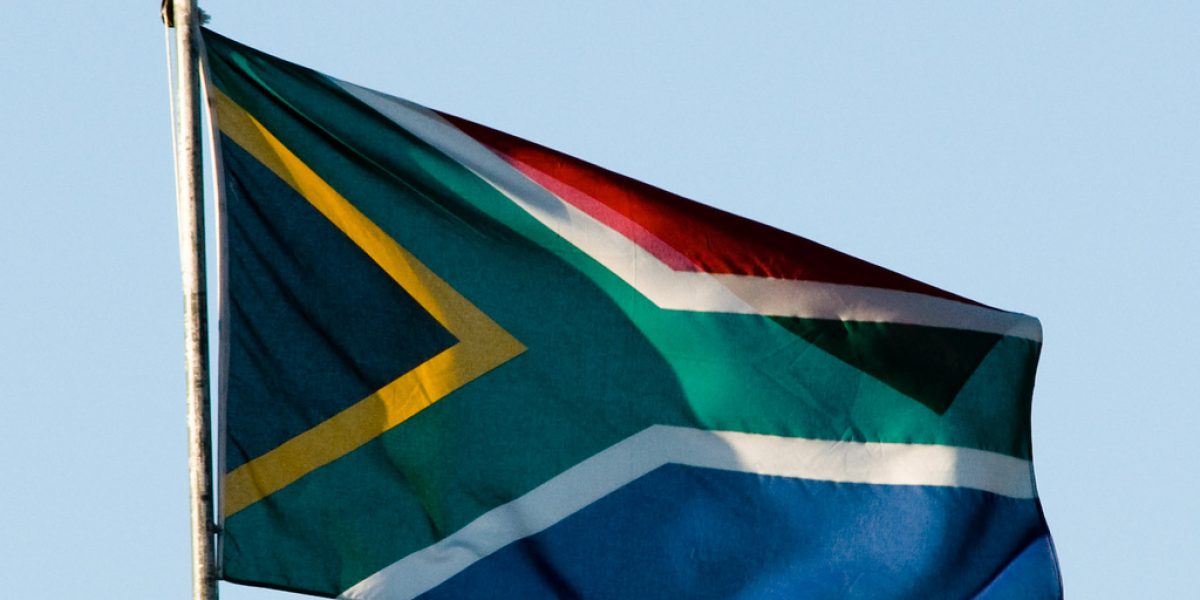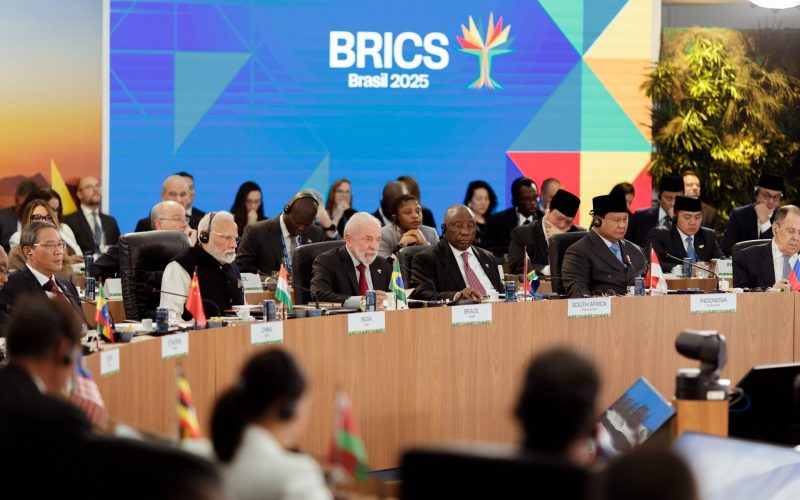In fact, its natural and mineral resources have been more bane than boon. It is up to African governments to lead they way in ensuring that Africa is put on the international business map.
In the 1990s, Africa managed an average GDP growth of only 2.6%. A closer look reveals that there are large disparities within Africa, not only among countries, but also between regions. Whereas GDP growth averaged 3.2% in North Africa, which benefits from its proximity to Europe and the Middle East, it averaged 2.3% in sub-Saharan Africa during the same period. Although the first three years of the twenty-first century have shown some improvement in the overall GDP growth rate (4.3% in 2001 and 3.2% in 2002) this is not enough. African countries require at least 7% in year-on year GDP growth to achieve the Millennium Development Goals (MDGs) to halve poverty, to reduce child mortality by two-thirds, and achieve universal access to primary education by 2015.
On the current record sub-Saharan Africa is not expected to achieve the MDGs — it will take over a 150 years for some sub-Saharan African countries to achieve them based on current development. Despite this bleak scenario, African governments hold the key to bridging the development backlog successfully. The introduction of more business-friendly and predictable policies on the continent can enable the continent to leapfrog the divide from chronic underdevelopment to greater prosperity, and is thus the most important policy instrument in their hands.
However, the creation of a business-friendly environment requires the implementation of a series of strategic decisions and policies that are not always popular with either the elite, with its entrenched interest in the status quo, or with the economically vulnerable electorate. Yet the reward of a strategic policy focused on engendering business confidence is without question. A business-friendly environment that is built on partnership and a long-term vision provides a platform for sustainable growth; and secure access to finance, technology and skills result in greater and more affordable consumer choice. The most important result of a healthy business sector in an equitable and responsive policy environment, is that it unlocks the potential of the continent to the greater advantage of all its citizens.
The recognition of the important role of the private sector in the continent’s development is clearly encapsulated in the vision of the New Partnership for Africa’s Development (Nepad). With its focus on self-help and a more equitable relationship between Africa and the first world in addressing the continent’s development backlog, Nepad highlights the important role that business could and should play in Africa’s development. There is a general consensus that without the active involvement of the private sector Nepad will fail. Overseas development assistance and handouts from the West will not solve Africa’s problems, and those African leaders who do not recognise this reality will suffer the consequences. While Nepad enunciates the vision, it is up to the individual African governments to seek ways of encouraging both local entrepreneurs and foreign investors.
What are the key risks associated with doing business in Africa and why does business view the African continent so negatively as an investment destination?
There is almost unanimous agreement that political risk associated with political instability and corruption are the major impediments to greater business confidence in Africa. The policy environment does not provide the stability and guarantees that business requires to make long-term commitments to the continent. Although this is generally regarded as an external perception, many African governments fail to recognise that the same risks identified by external observers are echoed by local business. Locals view the risks to establish or expand their businesses just as high, despite the advantages that are offered by their proximity to the market. The result is that foreign direct investment into Africa lags behind the rest of the world significantly. According to the Organisation for Economic Co-operation and Development (OECD), Africa received less than 2% of the world’s share of foreign direct investment in 2001.
Other risks impeding greater external and local business development on the continent include huge currency fluctuations; poor infrastructure; lack of a skilled workforce; lack of finance; the expense of doing business in Africa; high import tariffs; the size of the local market married with a lack of access to global markets; a poor regulatory framework; lack of investment incentives, and a lack of security of assets.
Despite these disincentives the South African business community has shown significant interest in Africa. In fact South Africa has emerged as one of the top 10 investors on the African continent over the last eight years. It is the largest source of foreign direct investment in Africa outside of the oil and gas sector. SA firms have invested an average of $1.4 billion a year in Africa since 1991, surpassing investment from the United Kingdom, the United States and France. South African exports to Africa have also grown from Rand 5 billion in 1991 to Rand 35 billion in 2001, representing 18% of South Africa’s overall exports in 2001. In contrast, Europe received 43% of South Africa’s exports, Asia 23%, America 14% and Oceania 2%. Although South Africa enjoys a substantial trade surplus with Africa, African exports to South Africa have increased by 133% since 2001.
The BusinessMap Investment Report 2002 revealed several significant new investments into southern Africa by South African companies in 2001 and 2002. The South African oil giant, Sasol, invested a further US$1.1 billion in the Pande and Temane gas fields in Mozambique; BHP Billiton, the Industrial Development Corporation (IDC) and Mitshibishi invested US$860 million in the expansion of Mozambican aluminum smelter Mozal; the South African telecommunications company Vodacom invested a further US$142 million in Tanzania and US$139 million in the Democratic Republic of the Congo (DRC); Sun International invested US$56 million in its hotel in Zambia and the South African power parastatal Eskom Enterprises invested US$ 6 billion in the Inga power project in the DRC.
The reasons for this growth in business interest vary, but has been largely driven by the search for new markets and the bottom-line, namely profit. In addition South African business has not been averse to taking calculated risks on the continent that is widely acknowledged to represent the last globally untapped consumer market. Many foreign firms with a foothold in South Africa maintain a presence here for exactly that reason. The appropriateness of South African products to the harsh conditions on the African continent, proximity to the market and thus greater price competitiveness, as well as a good knowledge of African conditions, have bolstered the South African business presence on the continent. The tradability of the rand throughout the continent as a means of payment is a good indication of the level of South African involvement in the continent.
Today, a wide mix of South African companies including retail; food; banking; telecommunications; tourism; infrastructure; power; franchise; construction; and mining, have expanded into Africa. This is a significant move away from the international trend to target the mining industry or other extractive industries almost exclusively.
African countries view the growth of South African business on the continent with a mixture of trepidation, applause and sometimes with outright hostility. Although South African companies are helping to unlock the business potential of the countries that they are involved in, this process is not always without problems.
Local business is especially wary of South African business domination, and complains that they are muscled out of the local market by South African companies that take over their market share with cheaper and superior goods. South African companies find it difficult to enter into partnerships with local companies that often lack a competitive advantage in terms of market share, access to technology, skills and finance. The most that local companies can generally offer to their South African partners is political access. South African companies often choose to accept this offer to avoid the Pandora’s box of extortion and bribery that accompanies business involvement in Africa.
It is important to keep in mind that South African business does not perceive business conditions differently from external observers. South African companies take a conscious decision to invest in Africa rather than elsewhere. There are several examples of failed South African business ventures and in certain countries like Kenya and Angola, South African business has been reluctant until recently to invest due to the extent of corruption under Moi’s government, and the security threat due to Angola’s past civil conflict, respectively.
However, it is also true that South African business is doing good business in Africa. Business returns in Africa have consistently shown a high return in equity ranging from 30% in the banking sector to as high as 50 – 65% in other sectors. As with any high-risk investment, the potential returns are high as well.
South African business is also fortunate that its thrust into Africa has coincided with a greater improvement of the macro-economic environment in most African countries, and more attention by African governments to their financial and economic policies. This fact, combined with the trend towards privatisation, greater transparency in political decision-making, and more attention to corruption have bolstered business confidence.
Does South African business offer any advantages to the continent? Clearly yes. A positive spin-off of South African entry into Africa is not only greater consumer choice in those countries and the introduction of new technologies, but also the commensurate growth of external business confidence in the continent.
Instead of viewing South African business as the new ‘coloniser’, ‘usurper’ and ‘hegemon’ of Africa’s future it can also be viewed as the new powerhouse, guarantor and driver of Africa’s economic growth and development.
-The three-year SAIIA Business in Africa project is sponsored by the Danish government.








